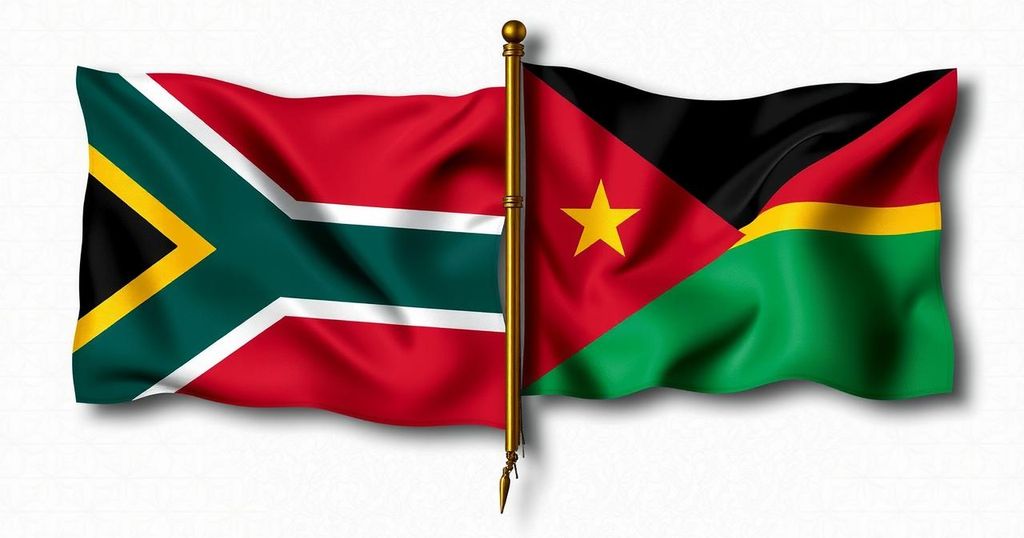South African officials, led by Foreign Minister Ronald Lamola, met with Mozambican counterparts to address unrest following disputed election results. Opposition leader Venancio Mondlane has called for protests against the ruling party, resulting in significant disruptions and violence. The situation demands urgent diplomatic intervention to maintain stability and prevent chaos.
Senior officials from the South African government engaged in discussions with their Mozambican counterparts in Malelane on Wednesday, in response to growing concerns regarding a potentially violent electoral dispute stemming from the October elections in Mozambique. The South African delegation, led by Foreign Minister Ronald Lamola, aims to facilitate a resolution to the conflict regarding the constitutional council’s impending ratification of the election results, which the opposition categorically rejects.
Opposition leader Venancio Mondlane has threatened civil unrest among his supporters should the council endorse the election commission’s declaration that he received only 20 percent of the vote, as opposed to the ruling Frelimo party’s candidate who allegedly garnered 71 percent. The South African team, comprising officials from various sectors including police, defense, and trade, seeks to comprehend the perspectives of their Mozambican peers on resolving the dispute while ensuring stability on their side of the border.
As tensions escalate, Mondlane has mobilized supporters, leading to significant disruptions in urban areas and impact on essential services including power supply and transportation. Local reports indicate that approximately 130 fatalities have occurred amid the unrest, as highlighted by the civil society group Plataforma Decide, cited by Amnesty International.
Mondlane maintains that an alternative count suggests he won 53 percent of the votes, a stark contrast to the Frelimo party’s claimed results, fueling discontent. Observers from the international community noted numerous irregularities associated with the electoral process, casting doubt on the legitimacy of the elections.
The current tensions in Mozambique arise from contested election results announced after the October 9 vote, leading to widespread protests and calls for civil disorder by opposition leaders. This complex situation demands diplomatic engagement, as South Africa seeks to maintain regional stability while addressing the security implications of escalating violence due to political dissatisfaction. The dynamics of the ongoing conflict necessitate a careful examination of the electoral processes and the underlying governance issues affecting Mozambique.
In summary, the discussions held between South African and Mozambican officials are crucial in navigating the electoral dispute that has led to significant unrest in Mozambique. With opposition leaders inciting potential chaos and regional stability at stake, diplomatic efforts are vital to resolving the deadlock and preventing further violence. The outcome of the constitutional council’s announcement will have profound implications on the political landscape of Mozambique and its relations with neighboring South Africa.
Original Source: www.barrons.com






